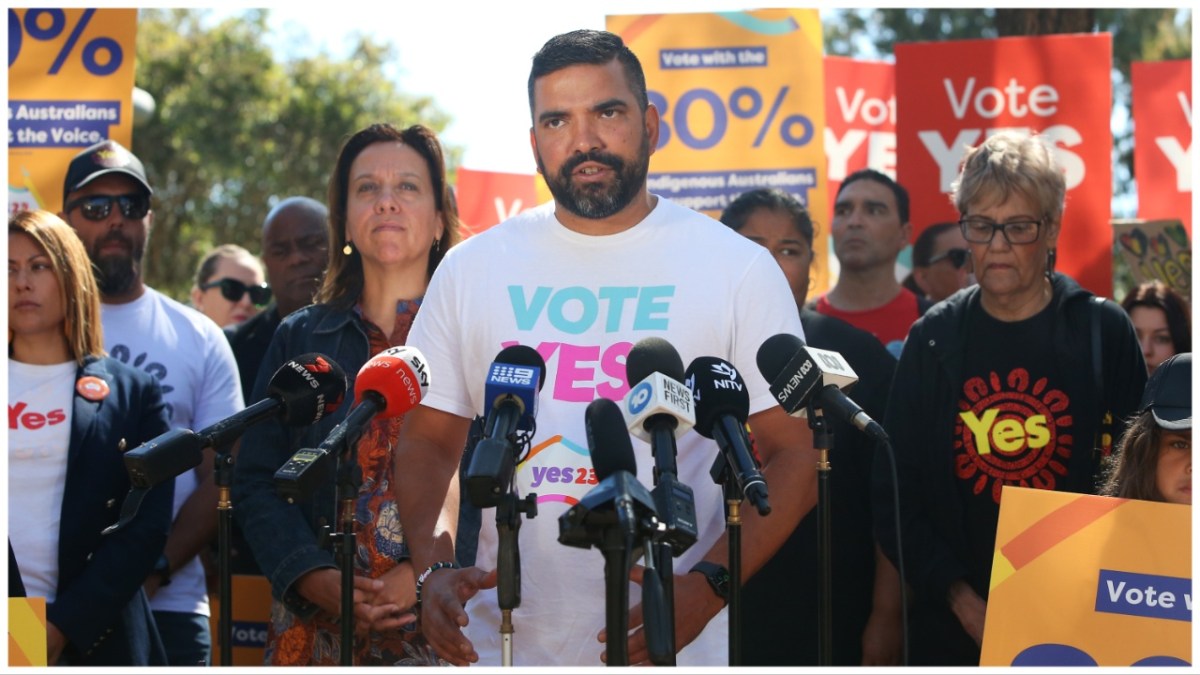On October 14, Australian voters rejected a referendum that would have increased rights and representation for the Aboriginal and Torres Strait Islander people. The aim of the referendum was to establish a representative body that would advise the government on issues concerning the Indigenous community. The members of this representative body would have been selected by the Indigenous community. The no vote won by 60%.
So now what? As they process the pain of this staggering rejection, Indigenous Australians called for a week of silence. Though some have declared the path to reconciliation dead, others remain hopeful, among them Indigenous leader and former rugby player, Lloyd Walker. In his reaction to the vote, Walker stressed the need for hope and continued organizing to make things better for the next generation. Walker also noted that it was important in his opinion to keep in mind that 40% of voters did want Indigenous rights. One—but only one—of Australia’s territories voted a majority yes on the ballot question, the Capital Territory. Australia’s capital city, Canberra, is located in the Capital Territory.
Indigenous people make up about 3.8% of Australia’s population. The term Aboriginal Australian is used to refer to people whose cultural heritage is of Indigenous mainland (Aboriginal) and island off the coast of Australia (Torres Strait Islanders). Australia has never signed a treaty with its Indigenous people. Like Indigenous people around the globe, Aboriginal people have faced persecution, genocide, the removal of their children, and the erasure of their language and culture. Though Aboriginal people have been in Australia for 50,000 years, they did not have full voting rights until 1967.
In 2008, Kevin Rudd, then Australian Prime Minister, made a formal apology to the Aboriginal people for the harm done to them. At the time, the gesture was seen as a productive step towards reconciliation that other nations and leaders might look to. Now First People around the world are viewing Australia as reactionary and out of sync with advancing human rights after this vote. In New Zealand, Indigenous people have had representation in Parliament since 1867.
In advance of the election, UN human rights experts extolled the importance of voting yes. Amnesty International proclaimed the loss of the referendum campaign as heartbreaking and pledged to continue to support the fight for full rights and representation for Indigenous people.
One Australian member of parliament has stated that a fair campaign for Indigenous rights would mean stemming the tide of American influence, in particular Trump-style politicking. Whatever comes next for Aboriginal rights organizing, it may be powered by Aboriginal youth who make up 51% of Australia’s Indigenous population. In the minds of some Aboriginal youth, though the failure of the referendum is disappointing, the attempt at a voice in government was not ambitious enough. Instead, they want more inclusive rights enshrined in a treaty.
(featured image: Lisa Maree Williams/Getty Images)









Published: Oct 29, 2023 07:25 pm